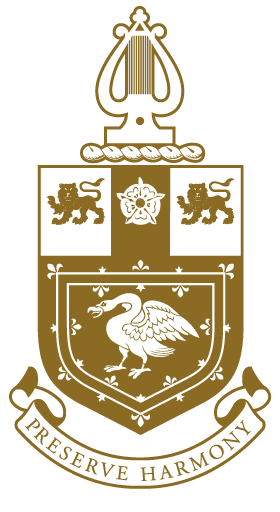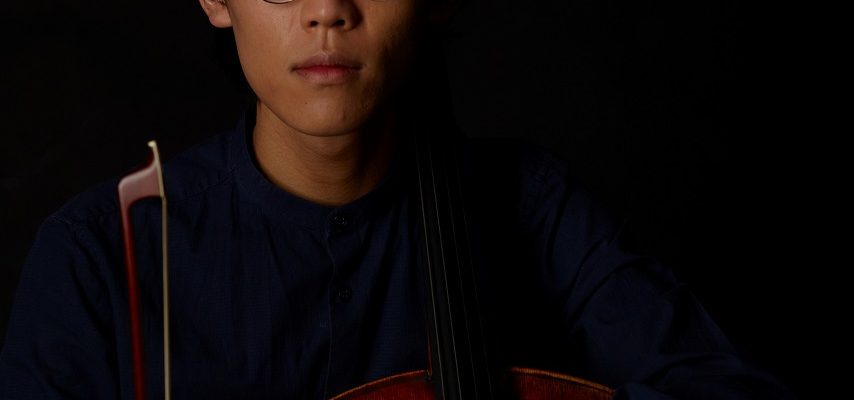Young Artist Interview: Samuel Ng on finding his niche
Being born into a non-musical family, I have had the mixed blessing of being able to have my own space to discover and realise my own musical identity at my own pace. I very much had to work out how things worked in the industry by myself, which is a process the majority of musicians’ have to face one way or another, whether it be in music conservatoire or as a freelance musician. Placing your foot into such a competitive field is incredibly difficult as there are plenty of musicians that are of the same calibre as you, so differentiating yourself and finding out what makes you special is a process that takes time and self-reflection.
I recently met up with one of my dearest friends – a fellow cellist studying in Germany – over the Christmas break and we found ourselves talking about our struggles within the industry and how to try and make our mark in such a competitive field. The conversation evolved into the idea of each musician trying to find their niche. When one finds this, you have the chance to create or take on opportunities which you are dearly passionate about and forge a career doing it. Taking a good look at yourself as a person and the way you convey yourself as a musician can help you try and uncover your identity. Of course, this can change, but we must really ask ourselves, what makes us special?
Over the course of 2019, I have done crazy things. Some highlights were performing at the Musikverein for the Vienna Philharmonic Ball at the age of 19 and being on tour for two months as a chamber musician performing in Spain, Austria, Germany, Hungary, Ukraine and Serbia. All the opportunities which I truly cherish are ones that reflect who I am as a musician and are things I am deeply passionate about. I had help finding my niche implicitly through the help of the Scandinavian Cello School (SCS).
Performing alongside cellists of the Scandinavian Cello School at the annual Vienna Philharmonic Ball was a once in a lifetime opportunity and is one of my most fond and cherished memories of collaboration, celebration and hard work. I first came into contact with the Scandinavian Cello School in the Easter of 2018 where I participated in a residency in Poland and met teachers who are today some of my strongest mentors. This include the British cellist Jacob Shaw who is the founder of SCS and gamba player Maddalena Del Gobbo who is a Deutsche Grammophon recording artist. As a naturally driven person, I have benefitted greatly from the help of SCS in the form of career advice – a big part of the foundation’s ethos is tailoring each student’s goals and aspirations and creating a plan to turn it into reality.
Opportunities that I have applied and auditioned for have always followed my passions and are ones that fit me well in descriptions. The summer of 2019 was one of my busiest times – for two months I was travelling through Europe and performed in six countries as a chamber musician. I was extremely honoured to have been selected to participate in the 2019 Encuentro de Música y Academia de Santander. My July was spent in the beautiful setting of Santander in northern Spain and I had the chance to collaborate in concert with pedagogues and artists such as Zakhar Bron, Andrea Lieberknecht, Dag Jensen. I also had the fortune of working with the composer Péter Eötvös in many of his own compositions. Following Santander, I flew to Austria for the Colluvio Chamber Music Academy and Tour, where I rehearsed and performed the Schumann 3rd Piano Trio across five countries, which was followed by a recording and radio broadcast in Serbia. I learnt a great deal during this month as it was a supportive musical environment which was filled with cultural exchange between ethnicities and cultures.
Your ‘niche’ can most definitely change – we are always learning, evolving and adapting to our surroundings. This has definitely been the case with me. During my time at the Royal College of Music in London7, I have become a joint principal study baroque cellist alongside the modern cello. Not only do I find the historical approach with period instruments truly fascinating, I strongly believe that a working musician should be versatile and historically informed in the styles they play, whether it be on period or modern instruments. Within the historical performance department I have found myself busy as a chamber musician, recently forming the Hogarth Quartet with some of my best friends. We play on period instruments and perform the classical and romantic quartets, with many recitals lined up and exciting plans coming up in the near future. Sticking to what you are good at is great but there is also an element of being able to diversify and find enjoyment in being a versatile musician.
As a classical musician, it is more important now than ever to create opportunities yourself, very rarely have I or my colleagues been handed concert opportunities. Of course this ties in directly with the inevitable reality that there will be rejection emails and concerts which cannot be programmed, but more often than not I have found that my career has only benefitted from actively seeking and applying to multiple concert series, foundations and writing concert proposals.
View Samuel performing the Schumann 3rd Piano Trio
You can find out more about Samuel on the Company website
Interview by @suzywillmott.com

